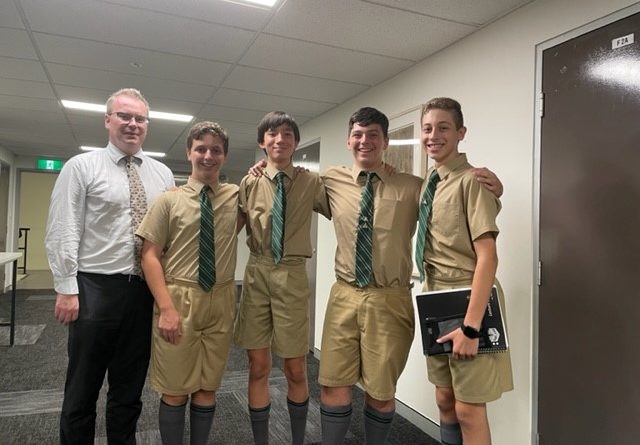Debating News | Round 3
YEAR 7 ISDA
Last Friday, the Year 7 Trinity ISDA Debating team came through with a very helpful win. Trinity hosted the event against Barker College, who no doubt were tough opponents. Forty-five minutes prior to the debate, the topic was given, being “That children’s sports teams should have mixed-gender teams instead of separate boys and girls’ teams”. We were allocated the affirmative case which relates greatly to the common topic, gender equality. Unlike the previous week, the work in the preparation room was smooth, effective, and successful, and the result of that showed, after the debate. One thing that can be improved on is giving reasoning behind our points and definition, justifying our case to the adjudicator.
After the forty-five minutes’ preparation period, the debate commenced, and the tension was felt from inside the room. Our First Speaker, O. Ang (7WJ) was able to give a clear, fair, and precise definition of the topic, and gave a great model on the future of equal gender sporting teams. He also stated that Sports create great teamwork skills along with a base idea of how to interact with other genders. However, as a team we failed to give reasoning behind our definition, making our points less valid and much less reasonable. The opponents came out saying that collaboration and teamwork could exist in different ways including school groupwork and other forms of academic work. The Adjudicator felt that our side was stronger as the opponents clearly failed to back up their points with clear elaboration and reasons why their points were better. Our Second Speaker, R. Coneliano (7Fo) continued with the theme of getting the genders together early to prepare them for the future workplace, hence having a world filled with more gender equality. He elaborated on this well, and it was one of our key winning points, come the end of the debate. The opponents again stated the range of different ways that gender equality could be enforced from a young age, implying that sport was not the way to do it, but failed to give the adjudicator an effective solution to the problem. Our Third Speaker, R. Qin (7Yo) was able to give a very impressive sum up of the debate, explicitly stating why our argument were better and we had the best and only solution to the problem.
In conclusion, the adjudicator eventually awarded the debate to us, implying that our points and solutions were more effective than the opposition’s arguments, as well as being able to elaborate and give justification on why we should change the status quo. It was a high-level debate although it was quite clear who ended up out on top.
Urbano (7We)
YEAR 7A FED DEBATING
On Friday the 4th of March the Trinity 7A FED team, composed of J. Wong (7Du), D. Lin (7Fo), T. Henry (7Ta), and O. Hannan (7Fo), debated against Sydney Boys High School. For this debate, we were allocated the negative case and the debate was still online. The topic was “That there should be a quota of 50% for female authors/poets who are studied in high school”. This topic is one which is heavily weighted in favour of the affirmative team, and so was very difficult for us against which to provide an argument. Moreover, the topic is quite difficult for Year 7 students. In the prep room, we came up with points that surrounded the fact that in history, the world has always been more in favour of men, and so we tried to argue that in the past there has been less opportunity for women to write. However, the affirmative team rebutted this by saying that there were many females in writing so a curriculum could be easily filled with female writing. The affirmative also stated that having a 50% female quota would provide a curriculum change and could help students learn more things and have a larger range of writing experience. Additionally, they stated that it would inspire girls to be writers or poets. So, based on those arguments, the adjudicator awarded the debate to the affirmative team. We received some very helpful feedback once the debate was over, including the fact that in gender debates, it is very hard to deny that there is an issue with gender inequality, and so, in a situation like this one, it is much better to provide a counter-model, which is an alternative solution to the issue proposed by the negative. This debate has been a learning experience for the team, and next time we have a debate like this again we will be much better prepared.
Hannan (7Fo)
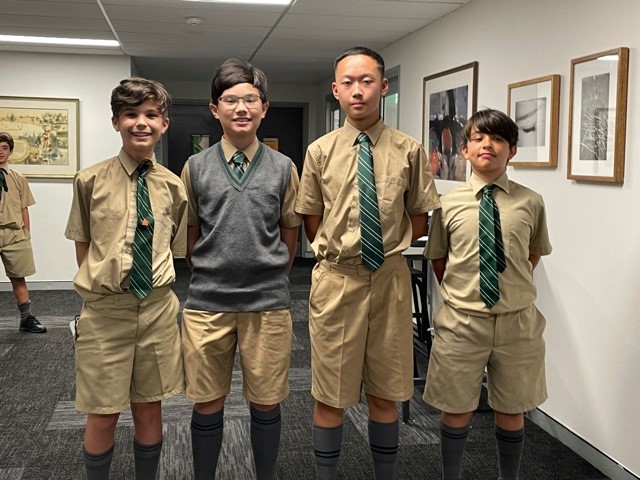
YEAR 9 ISDA DEBATING REPORT
Last Friday, the Year 9 ISDA Debating team consisting of E. Ciarroni (9W-J) as first speaker, C. Ciarroni (9W-J) as second, D. Lok (9Ke) as third and M. Padmore (9Mu) as fourth) had a strong victory against Barker College, with the topic “That incentives should be introduced to encourage women to join the military”. We, as the Affirmative side presented our model that we would provide university scholarships focused around military areas, such as medical or engineering degrees. Once these women complete their degree, they will serve in the military for the same amount of time their degree took. Barker countered our arguments by claiming that by providing incentives, we will be taking the wrong kind of people into the military, who are only there for the monetary benefits. However, our arguments that improving the gender quota of women would reduce sexism and discrimination in the military, as well as providing guaranteed employment, were able to outweigh and counter the opposition’s issues with our model. Overall, the adjudicator focused on the core issue of how it will affect women, who were the primary stakeholders in this debate. Since we were able to prove that our model will positively affect women and solve the problem in the status quo we were able to win the debate.
Ciarroni (9W-J)
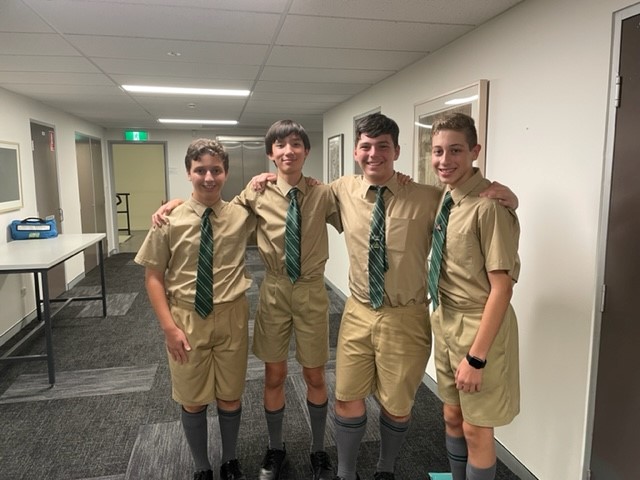
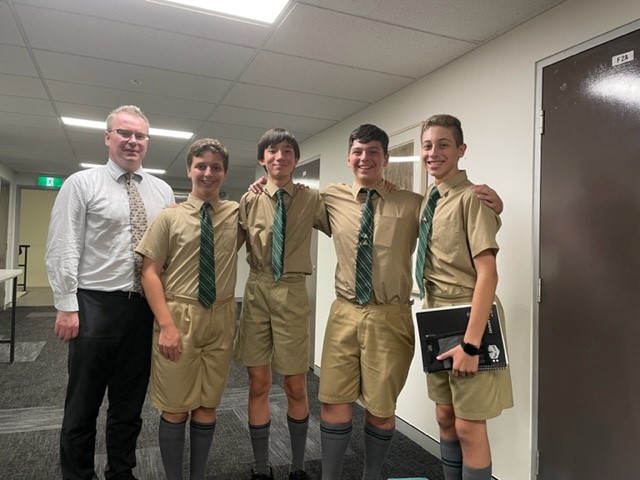
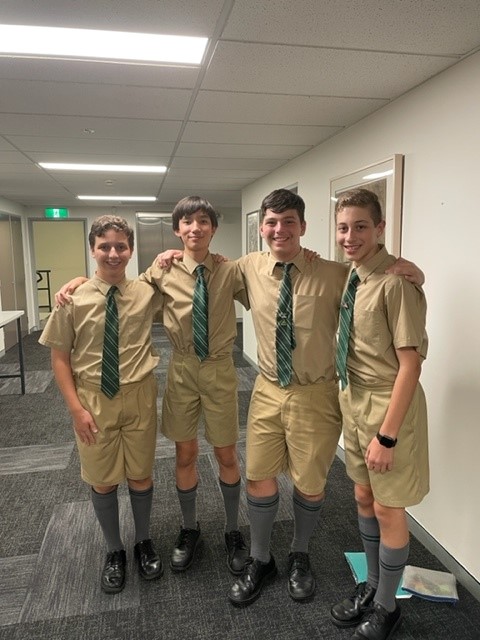
YEAR 10 FED DEBATING REPORT
On the Friday, 4th of March, the Year 10 FED team debated against Sydney Boys High, on the topic “That joint sports league tables should be mandatory”. Our team argued on the negative team and our main points were based around the impracticality of the joint sports league tables, the unfairness towards all stakeholders and that it would spark protesting between the audience and teams.
Our first speaker A. Nair (10 Yo) brought out a convincing argument, which introduced our alignment with the status quo, and argued against the issue of gender inequality in sports. Our second speaker, D. Soysa (10 W-J), decisively rebutted the opposition team’s case through structured rebuttal, being able to attack the key ideas presented by the affirmative team. Our third speaker, B. Logarta (10 Ta), thematically rebutted the other team through complex categorising and structured rebuttal.
Although we were unsuccessful in this debate, it was a very close debate, and we strive to do better in our future debates.
Ayoub (10 Fo)

